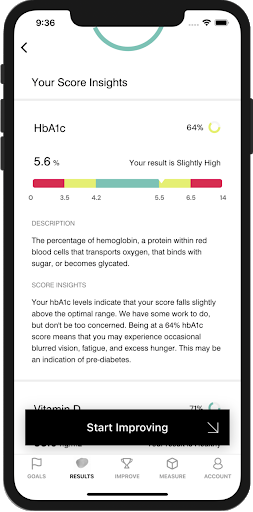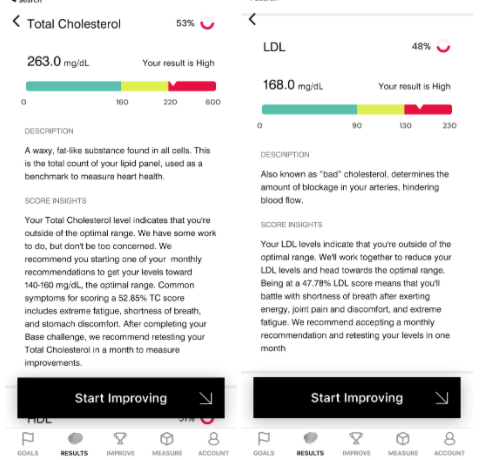The 3 Things That Happen When You Go Keto and Cut Your Carbs
It probably doesn’t come as a big surprise that eating a high-carbohydrate diet can be bad for your health.
Diets full of poor-quality, quickly-absorbed carbohydrates like sugars and refined grains have been linked to a myriad of different health issues including obesity, high blood pressure, and Type 2 Diabetes – just to name a few!
It’s no wonder that so many diets and health trends have made a switch. Rather than focusing on that classic “food pyramid” that placed carbohydrates as the base tier of their diet, many people are shifting to low carbohydrate plans like the keto diet to minimize their intake of this notorious macronutrient.
But with everyone turning to carb-cutting because they have a hard time losing weight, it also begs the question: how does eliminating carbs actually affect your health beyond the scale?
It turns out that there’s some very good news here in terms of weight loss and curing brain fog, but this kind of plan also requires careful monitoring and hormonal imbalance testing to ensure it’s not doing more harm than good.
Here are three things we’ve found that happen when you cut out the carbs:
1. You’ll probably lose weight.
If you have a hard time losing weight no matter what you do, cutting your carb intake might be the answer.
Carbohydrates are your body’s main source of energy. This is great for giving yourself a short-term boost, but it also means that a high-carbohydrate diet will also be high-caloric, and any calories that aren’t used as an energy source will be stored as fat.
Research has shown that people who follow low-carb diets actually lose weight more quickly than those on other diets. While all weight loss happens when you eat fewer calories than you burn, getting on a low-carb diet like keto has been shown to be a more efficient method for weight loss than other diets like a low-fat plan.
You may have heard the term ketosis being used in relation to the keto diet: when you eat carbs, your body uses the resulting sugar as its main energy source. However, when you consume a diet that provides a moderate amount of calories from protein and very few carbohydrates, your body “switches” its energy usage due to the lack of present sugars and begins to burn your body’s stored fat for fuel, leading to fat loss! You might also have a hard time losing weight because you’re retaining water. Studies have shown that a diet high in carbohydrates can increase your body’s production of insulin, which can then lead to sodium retention in your kidneys. This sodium retention can cause your body to hold on to more water and therefore increase your weight. Once you switch to a low-carb diet, though, your insulin decreases, and the sodium releases from your kidneys, which can lead to a quick initial weight drop as you lose that water weight. The results can be pretty dramatic – during the first five days, you could lose up to 10 pounds from water weight alone!
You may have heard the term ketosis being used in relation to the keto diet: when you eat carbs, your body uses the resulting sugar as its main energy source. However, when you consume a diet that provides a moderate amount of calories from protein and very few carbohydrates, your body “switches” its energy usage due to the lack of present sugars and begins to burn your body’s stored fat for fuel, leading to fat loss! You might also have a hard time losing weight because you’re retaining water. Studies have shown that a diet high in carbohydrates can increase your body’s production of insulin, which can then lead to sodium retention in your kidneys. This sodium retention can cause your body to hold on to more water and therefore increase your weight. Once you switch to a low-carb diet, though, your insulin decreases, and the sodium releases from your kidneys, which can lead to a quick initial weight drop as you lose that water weight. The results can be pretty dramatic – during the first five days, you could lose up to 10 pounds from water weight alone!
2. That dreaded brain fog might clear up.
Have you ever found yourself wondering why you feel so tired after eating a carb-heavy meal?
Carbohydrates might be our brain’s preferred source of energy, but the modern diet full of poor-quality carbohydrates is probably doing more harm than good.
Constant brain fog and tiredness can be frustrating, so people are always looking for answers to help increase their focus. We often find that the root cause of brain fog lies in irregular blood sugar levels. This can be measured by evaluating Hba1C (or blood sugar reading), which can be a clear predictor for diabetes.


A Base result showing slightly high blood sugar.
A diet heavy in poor-quality carbohydrates can lead to fluctuating blood sugar spikes, and your body compensates by increasing insulin resistance. Besides being bad for your waistline, this has also been linked to poor cognitive performance.
Reducing your carb intake will prevent those blood sugar spikes, which might alleviate those foggy moments, provide some much-needed relief from tiredness, and even boost your mood!
In addition, a low-carb diet can actually change the way your cells use energy. As we mentioned earlier, eating fewer carbohydrates will put your body in a state of ketosis, meaning it shifts from using sugar as your main source of energy to fat. Studies have shown that this state of ketosis will actually lead to an increased production of mitochondria, which can be thought of as the “power source” of all of your cells.
Ultimately, cutting out the carbs means that you’re getting higher quality energy directly to your brain!
3. You may see some hormone imbalances and increased cholesterol.
Now let’s look at the not-so-good side of carb-cutting.
While a diet high in carbs has been shown to be bad for your weight and your brain, cutting carbs completely may lead to dietary and hormonal imbalances that can actually hold you back from feeling better.
Many people cut carbs and replace them with fats instead – this is the main premise behind the keto diet, for example. Moving to a high-fat diet can lead to negative health consequences, even if the number on the scale is moving in your favor. Take, for example, the relationship between keto and cholesterol. While going on the keto diet can help with weight loss, people who follow low-carb diets long term may develop issues with their LDL, or the “bad” cholesterol that can lead to health issues like heart disease and high blood pressure. This indicates that keto and high cholesterol are pretty closely linked.
While a diet high in carbs has been shown to be bad for your weight and your brain, cutting carbs completely may lead to dietary and hormonal imbalances that can actually hold you back from feeling better.
Many people cut carbs and replace them with fats instead – this is the main premise behind the keto diet, for example. Moving to a high-fat diet can lead to negative health consequences, even if the number on the scale is moving in your favor. Take, for example, the relationship between keto and cholesterol. While going on the keto diet can help with weight loss, people who follow low-carb diets long term may develop issues with their LDL, or the “bad” cholesterol that can lead to health issues like heart disease and high blood pressure. This indicates that keto and high cholesterol are pretty closely linked.

An example of a lipid panel on Base showing both high cholesterol and high LDL.
Having high LDL levels can be a huge indicator of chronic diseases down the line, so it’s very worth it to keep an eye on your cholesterol on keto with a hormone test.
Taking it one step further: cutting carbs can also lead to hormonal imbalances that can affect a myriad of body functions, weight loss included.
Your hormones and weight loss are intricately linked, and it’s important to know how to balance your hormones to lose weight. A low-carb diet can cause issues with your thyroid, the organ responsible for hormone production that directly controls metabolic function, and this is especially true in women. Studies have found that a low-carb diet can also lead to a drop in T3, which is a key hormone that helps manage your body weight.
In fact, our founder Lola started Base because she had this exact problem!
With any dietary endeavor, especially with a ketogenic diet or any other diet that aims to drastically reduce a macronutrient, it’s especially important to be aware of your hormone levels to ensure that you’re approaching it in the healthiest way possible.
In the end, a smaller carbohydrate intake can yield some big results - but monitoring is key.
Cutting carbs to a minimum can be an effective way to lose weight and cure brain fog, but don’t demonize this macronutrient completely. Getting small doses of healthy carbohydrates like those from fruits, vegetables, and complex carbs like whole grains and legumes, will allow you to lose weight and improve your brain health without throwing your hormones completely out of whack.
There’s a reason they always say to consult your doctors when attempting weight loss - there’s a lot more brewing beneath the surface when trying a new diet besides weight loss alone. An at-home hormone test like Base can provide you a screenshot of all those important markers so you can take full control of your health.